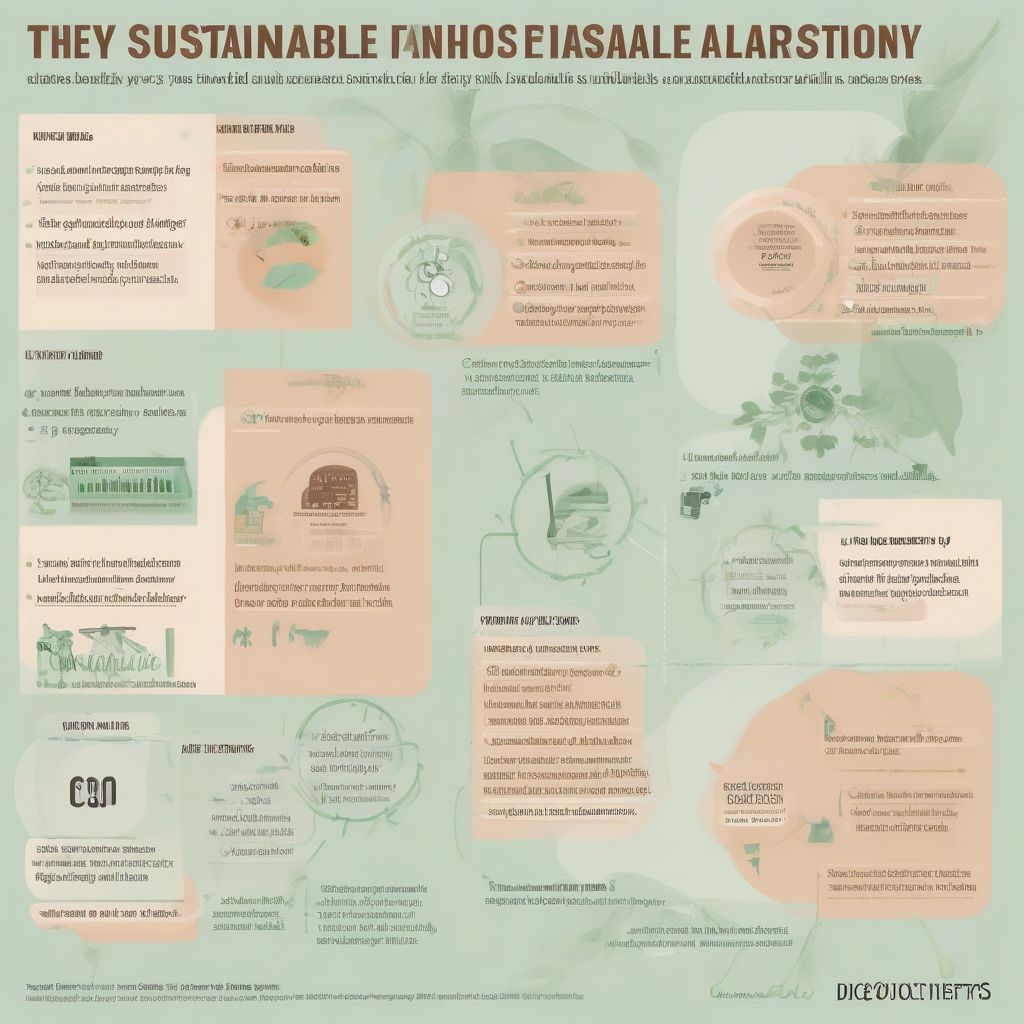Have you ever stood in a store, bombarded with clothing labeled “eco-friendly” or “conscious,” feeling unsure about the validity of these claims? You’re not alone. The rise of sustainable fashion has led to a confusing wave of greenwashing, making it tricky to discern truly ethical brands from those simply riding the trend. But don’t worry! This guide is here to equip you with the knowledge to confidently identify brands genuinely committed to sustainability.
What Makes a Fashion Brand Truly Sustainable?
Before we dive into specifics, let’s define what constitutes true sustainability in fashion. It goes beyond just using organic cotton or recycled materials. A holistic approach considers the entire lifecycle of a garment, encompassing:
- Environmental Impact: Minimizing pollution, water usage, carbon footprint, and waste throughout production, transportation, and even the garment’s eventual disposal.
- Ethical Labor Practices: Ensuring fair wages, safe working conditions, and no exploitation within the supply chain.
- Material Sourcing: Prioritizing eco-friendly and ethically produced materials from sustainable sources.
- Transparency and Traceability: Openly sharing information about their supply chain, manufacturing processes, and social impact.
- Durability and Longevity: Creating high-quality, long-lasting garments that minimize the need for frequent replacements.
 Sustainable Fashion Infographic
Sustainable Fashion Infographic
Decoding Sustainable Fashion Jargon
Navigating the world of sustainable fashion often means encountering a maze of buzzwords. Let’s demystify some common ones:
- Organic: Refers to materials grown without harmful pesticides, herbicides, or GMOs, promoting soil health and biodiversity.
- Recycled: Utilizes pre-existing materials, reducing waste and the demand for virgin resources.
- Upcycled: Transforms discarded materials into new, higher-value products, minimizing waste and promoting creativity.
- Fair Trade: Ensures fair wages and safe working conditions for farmers and workers throughout the supply chain.
- Vegan: Excludes the use of animal products, promoting animal welfare and reducing the environmental impact associated with animal agriculture.
Practical Steps to Identify Truly Sustainable Fashion Brands
Armed with a foundational understanding, let’s explore actionable steps to identify truly sustainable brands:
1. Look Beyond the Label:
Don’t be swayed solely by buzzwords. Dig deeper into the brand’s website, specifically their “About Us” or “Sustainability” page. Look for detailed information about their values, commitments, and concrete actions.
2. Investigate Material Choices:
Pay attention to the fabrics used. Opt for natural, organic, recycled, or upcycled materials whenever possible. Research certifications like GOTS (Global Organic Textile Standard) and OEKO-TEX Standard 100, which guarantee certain environmental and social criteria have been met.
3. Scrutinize Manufacturing Practices:
Where are the clothes made? Look for brands that manufacture locally or in countries with strong labor laws. Certifications like Fair Trade, SA8000, and B Corp indicate ethical working conditions.
4. Check for Transparency and Traceability:
Can you trace the journey of the garment from its origin to your closet? Truly sustainable brands provide transparency about their supply chains, often allowing you to track the origin of materials and manufacturing locations.
5. Consider Brand Values and Mission:
Does the brand’s overall mission and values align with your ethical standards? Research their involvement in social initiatives, charitable partnerships, or environmental advocacy.
6. Evaluate Durability and Timelessness:
Sustainable fashion emphasizes quality over quantity. Choose well-made, durable pieces with a timeless design to reduce consumption and waste in the long run.
7. Seek Out Third-Party Certifications:
Look for reputable certifications that verify a brand’s sustainability claims. Some well-known certifications include:
- B Corp: Certifies companies meeting high standards of social and environmental performance, transparency, and accountability.
- Fair Trade: Ensures fair wages, safe working conditions, and community development for farmers and workers.
- GOTS (Global Organic Textile Standard): The worldwide leading textile processing standard for organic fibers, ensuring ecological and social criteria are met throughout the supply chain.
- OEKO-TEX Standard 100: Certifies that textile products are free of harmful chemicals and safe for human health.
8. Engage with the Brand and Ask Questions:
Don’t hesitate to reach out to brands directly through email or social media. Ask specific questions about their practices, certifications, and commitment to sustainability.
9. Support Sustainable Fashion Bloggers and Resources:
Numerous online resources and influencers dedicate themselves to promoting sustainable fashion. Following them can provide valuable insights, brand recommendations, and educational content.
10. Embrace Secondhand and Vintage Shopping:
Extending the lifespan of clothing is a powerful way to reduce waste. Embrace the world of thrifting, vintage shopping, or clothing swaps to give pre-loved garments a new life.
Conclusion: Making Conscious Choices for a Better Future
Identifying truly sustainable fashion brands requires a discerning eye and a commitment to informed purchasing decisions. By understanding the principles of sustainable fashion, decoding industry jargon, and following these practical steps, you can confidently choose brands that align with your values and contribute to a more ethical and environmentally responsible industry. Remember, every purchase is a vote for the kind of world we want to create—make it a conscious one.
Now, we’d love to hear from you! What are your go-to sustainable fashion brands or tips for identifying them? Share your thoughts and experiences in the comments below!
[amazon bestseller=”sustainable fashion”]
